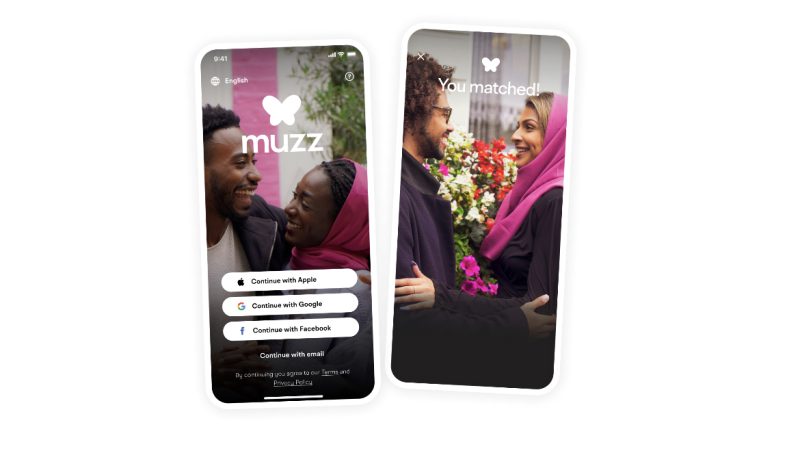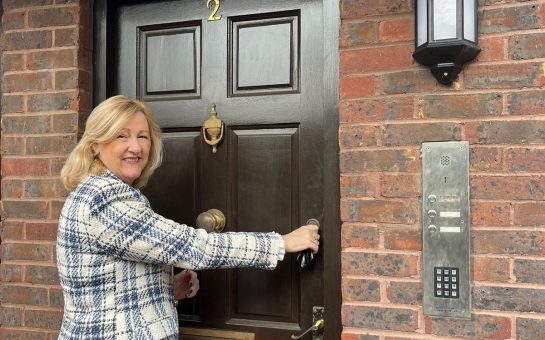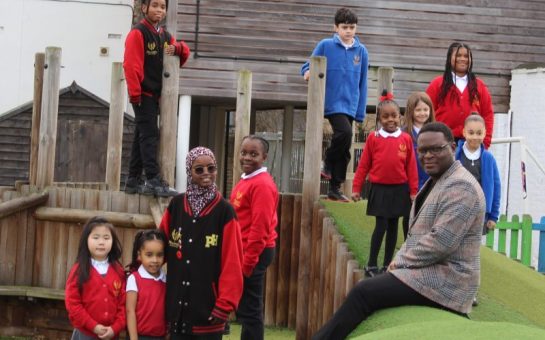Although Muslims may consider dating as Haram (religiously forbidden) dating apps are here to stay, as they become more and more popular among the Muslim community.
Over the recent years the traditional routes to marriage for Muslims have seen a decline as they slowly move towards modern day dating- using apps to find love.
The freedom of finding their own partner did not always live up to its expectations for some.
Ilyas Khalid, 19, from West London said: “Dating apps can be good if used with the intention of marriage.
“But going on countless dates and endlessly swiping to match with someone that eventually does not reply to your messages has become a tedious job for me.”
The term ‘dating’ carries a negative connotation within the Muslim community especially by the older generation.
This perception arises from concerns that dating may imply or lead to engaging in premarital sexual activities, which is prohibited in Islam.
Before the rise of dating apps, a traditional route to finding a spouse was a task assigned to parents or relatives.
But the western cultural influence has changed all that as more and more young people have now taken it upon themselves to find their partner.
As dating becomes progressively common amongst young Muslims, the pressures of adopting western dating culture have had a negative on them.
What is Halal and Haram dating?
The term ‘halal’ refers to anything permissible within Islam by adhering to Islamic teachings as not to cross boundaries.
Halal dating refers to the practice of dating with the intention of marriage, which involves abstaining from physical intimacy until after marriage.
It is guided by Islamic principles that emphasize modesty, respect, and commitment in relationships.
Haram refers to anything prohibited within Islamic guidelines which are strictly forbidden.
Haram dating involves practices that go against Islamic guidelines, this could include physical intimacy, premarital sex and not being chaperoned by relatives.
The pressures of finding a spouse, combined with the taboo surrounding online dating within the Muslim community, have led many younger people to believe that it may negatively impact their perception of marriage.
Muslims don’t date – they marry
The world’s leading Muslim dating app Muzz, has eight million members worldwide promoting marriage rather than dating.
In 2014, while finding it hard to find himself a spouse, founder Shahzad Younas was motivated to create the app after leaving his job as an investment banker at Morgan Stanley.
It aimed to provide a more convenient and halal-focused approach to matchmaking within the Muslim community.
Muzz PR manager Sofie Ahmed said: “Dating apps gives members the power to control how they find their partner, moving away from the traditional routes.
“It’s giving Muslims an avenue who have the same want which is not just dating but marriage as the end goal.”
Like many mainstream platforms, Muzz gives users the power to create profiles, according to their preference.
However, a few key features that have been added that caters specifically for Muslims.
The chaperone feature allows members to have a someone trusted such as a family member to be present in the conversation.
Another feature that stands out is the blurred pictures element, allowing user to blur photos to control privacy.
Over 400,000 members have successfully gotten married after meeting on Muzz, with one London couple making this decision after just three hours of speaking.
With the increasing prevalence of casual dating in the capital, many Muslim Gen Z Londoners are experiencing heightened challenges in balancing their religious values with prevailing social norms.
The pressure to navigate between these two realms can be daunting for individuals who strive to uphold their religious principles while also wanting to engage in social interactions.
Ahmed said: “A lot of the stigma comes from the older generation, some people might feel that if they join a dating apps they fear what will my parents say.
“But the parents are realising that apps are helping and that it does lead to marriage and they are now telling friends, It’s very big pressure for the parents, especially in the Western world.”
Ayesha 26, and Zach 27 both from London, met on Muzz in 2020 and married in 2022.
Ayesha said: “I always knew that I’d struggle to find a husband in real life, I’ve always been the only Muslim in my work place.
“The negatives that are associated with online dating – such getting ghosted, catfished, scammed – are things that can happen in your marriage search even if you are not dating online.
“If you are dating with the intention for marriage in a halal way then I think there is no reason for this to be frowned upon.”
Common app trends within the younger members have shown that users, particularly women have found the act of browsing can be repetitive and predictable.
Ahmed said: “Users have said that sometimes going on the app daily can feel draining, and a little bit of a burn out, and it can be off putting when you’ve been swiping non-stop and not find a match.”
Many Muslims are expected to start their pursuit for marriage as young as 18, however the concept of online dating has changed the way young Muslims perceive marriage.
Khalid said: “Finding someone is so easy nowadays and within seconds you could be in conversation with someone.
“But this has also meant I could be speaking to five or 10 girls at the same time, not everyone is serious on these apps, not everyone intends to get married.”
The easy access to thousands of singles living within a short distance may sound appealing to many.
But when trying to balance religious values while socially interacting with the opposite sex, this can pose its challenges.
Featured image credit: Muzz





Join the discussion